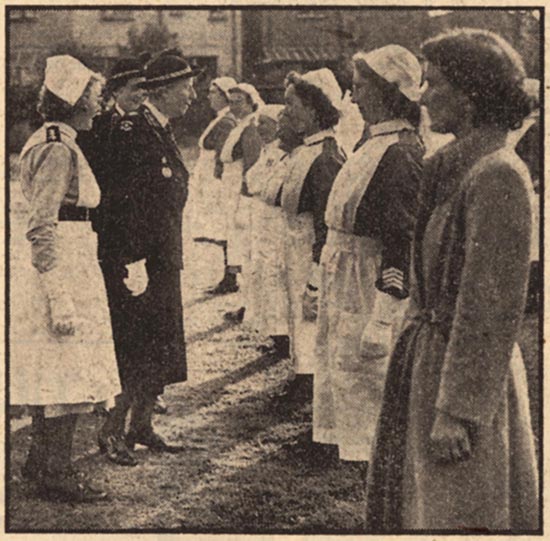In recognition of her hospital work during the Second World War and of her role as a community activist and civic leader, Doddie was honoured with an MBE (Member of the British Empire) by King George VI in 1951, and appointed as Dame of Grace of the Order of the Hospital St John of Jerusalem in 1955. She died on 11 January 1964 aged 75. Doddie never married. Having in her youth been deeply in love with Gordon Elton, she never found a man she liked well enough to marry. ‘I often wonder whether I shall see Gordon when I get over to the other side’, she once wrote to Mrs Armstrong, ‘but don’t suppose I shall be lucky enough to get anywhere where he is, he must have gone on a long way to a very much higher sphere than I am ever likely to reach, but still, he might come down to me, if he knew I wanted to see him.’
Dorothy ‘Doddie’ Hubbard
Having served as a nurse in France during the First World War, Ione’s friend Dorothy Hubbard continued to work for St John Ambulance. The association was an important and often the only provider of first aid and ambulance services in Britain before the establishment of the National Health Service in 1948. During the Second World War, Doddie was appointed County Superintendent of the St John Ambulance Brigade for Sussex. The role encompassed numerous administrative and other duties: ‘I have 27 Nursing Divisions under me’, she wrote to Mrs Armstrong in January 1942, ‘I have to form new Divisions where possible, be responsible for the efficiency and discipline of the Officers in charge of them, provide personnel for Rest Centres, Emergency Hospitals, relief shelter work in London etc. etc. Conduct exams, appoint Officers, speak at meetings when the occasion demands, solve knotty problems, smooth ruffled feathers, sign innumerable forms etc. etc. At the beginning of a new Year all the Returns from the Divisions are submitted to me, all these have to be checked before sending up to Headquarters … Some days I have anything from 15-25 letters to write, other times I am away for the whole day on ambulance business. In addition I wash up once a week at the canteen here, and am also head of a fire squad.’

